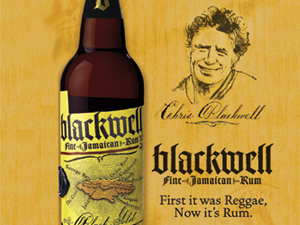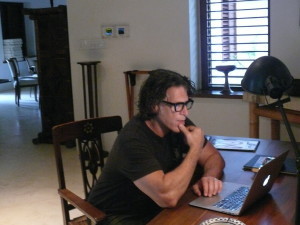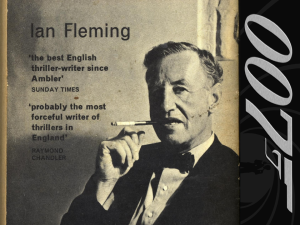Stan Slap's Blog, page 3
August 17, 2012
A BAD DAY AND A GOOD DAY – Pussy Riot
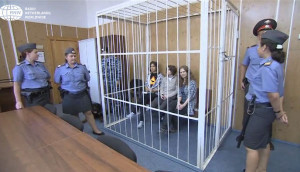 This is a very bad day for rock and roll. The members of the Russian feminist punk band Pussy Riot have just been sentenced by a Moscow court to two years in jail. Their unspeakable crime was an uninvited five-minute performance at Moscow’s main cathedral, singing a song that called for the Virgin Mary to protect Russia against Vladimir Putin, the provably oppressive and corrupt president of their country. “Hooliganism driven by religious hatred,” declared the judge. “Vladimir Putin is a miracle from God,” declared the church.
This is a very bad day for rock and roll. The members of the Russian feminist punk band Pussy Riot have just been sentenced by a Moscow court to two years in jail. Their unspeakable crime was an uninvited five-minute performance at Moscow’s main cathedral, singing a song that called for the Virgin Mary to protect Russia against Vladimir Putin, the provably oppressive and corrupt president of their country. “Hooliganism driven by religious hatred,” declared the judge. “Vladimir Putin is a miracle from God,” declared the church.
So these three young women – some of them mothers with young children, most of them vegans, all of them musicians using their art as a selfless plea for the improved lives of others –– sat in a courtroom cage for the last five months under armed guard. There’s only one real pussy here and that is Putin, who is intimidated by the power of the people and their music. As Nadezhda (Nadia) Tolokonnikova said from the cage before sentencing, “You may imprison us but our minds are free.” Spanked that ass, Nadia.
This is a very good day for rock and roll. We can now be reminded of the reason rock and roll exists and that it is not about tour grosses, boy bands and new streaming apps. It means something. It is the language of a culture, originally used to express the terrors and exhilaration’s of first freedoms; to confirm the questions and answers that belong to a generation in its time of becoming; to identify who belongs to the culture and who doesn’t.
Chris Rock says that, “Your music is the music you first got laid to.” We may believe that our relationship with rock and roll has since matured, gone to a softer, more companionable place. But what Pussy Riot has reminded us is that if you don’t know what’s true for you, everyone has unusual influence. If you’re not on your own agenda, you’re prey to everyone else’s. We each need a sense of what is right with the world that must be protected and what is wrong with the world that must be corrected and we need to use all of the opportunities and abilities given to us to help protect and correct in every way possible. You must know who you are, you must live your values, you must use whatever stage you have – including that of a manager – to extend your humanity to others.
“I don’t care what people say; rock and roll is here to stay,” once sang Danny and The Juniors. That’s true only if we protect it and translate it into what we do every day.
If you have a young son or daughter, this is a good day to buy them a guitar. If you just listen to music when you work or work out, this is a good day to turn it all the way up and remember why it reached you in the first place – rediscover the fire down below. And this is most definitely a good day to thank Nadia, Maria and Katya and wish them the best. We’ll be waiting at the gates for you in 2014.
July 27, 2012
LEADERSHIP: The Solution. Cleverly Disguised as the Problem. by Stan Slap
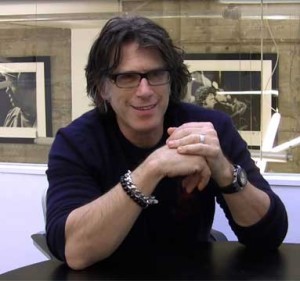 What’s needed is a model that will reliably allow managers to live their values at work without the company having to constantly facilitate the process. A self-sustaining model that is a safe and healthy choice for both the company and its managers.
What’s needed is a model that will reliably allow managers to live their values at work without the company having to constantly facilitate the process. A self-sustaining model that is a safe and healthy choice for both the company and its managers.
Brace yourself: The model is called leadership.
Wait — come back!
Not leadership the way you typically hear about it, as a corporate subversion of the concept—the 10, 100 or 1,000 immaculate and selfless organizational behaviors required for you to be anointed a “leader.” The true purpose of leadership isn’t to increase shareholder value or the productivity of work teams. That’s important and leadership will indeed do these things when applied in an organization; any corporate objective that depends on inspired human effort will best be realized through leadership. But that’s not the point of leadership; it never has been and it never will be, and to confuse cause and effect is to deny the critical reason to become a leader in the first place.
Taking the concept “leaders do the right thing” literally sets companies galloping off in an obsessive search for whatever “thing” is the Holy Grail of leadership. It’s not what leaders do that’s important;it’s why they do it. Leadership is a motivation. It’s a purpose before it’s ever a practice. The worst thing in your own development as a leader is not to do it wrong. It’s to do it for the wrong reasons. There is more mythology, misdirection, superstition and generalized academic babble about leadership than any other business subject. In fact, the purpose of leadership is to change the world around you in the name of your values, so you can live those values more fully.
July 17, 2012
Jamaica Part Two: Shaken AND Stirred by Stan Slap
 So, yeah, GoldenEye is now owned by Chris Blackwell, who last year turned it into a small luxury resort (10 rooms on the beach, 10 on a private lagoon and the Fleming house set on over 50 acres of beach and jungle). Back in the day, his mother was Ian Fleming’s lover and — how’s this for a traumatizing childhood event? — was the inspiration for Pussy Galore and once gifted Fleming with a boat she named Octopussy. (“MOM! Ewwww!”) When he was 21, Chris’ own small sailboat got wrecked and he washed up injured on shore, only to be taken in by Rastafarian’s who healed him. This gave him a spiritual connection to that culture, which would serve him well in later years. When he was 25 he was hired as the location scout for the first James Bond film, which was shot on the island, and at the time there were no film processing studios in Jamaica. They had to send the dailies by plane to Miami and wait 24 hours to see if what came back was useable. He told me that they were all gathered in the screening room (“Ian, Sean, all us…”) when they first saw the completed scene of Ursula Andress coming out of the water. “That’s when we knew it was going to be a hit.” He was offered a permanent job doing the Bond locations but a fortune teller told him he was going to have a more successful career in the music business so he went on to found Island Records, which did indeed bring Bob Marley and reggae to the world (Chris produced The Wailers’ Catch a Fire album) but he also signed U2, Traffic, Jethro Tull, Roxy Music, produced the film The Harder They Come and much more). There’s a moral in this somewhere but it escapes me.
So, yeah, GoldenEye is now owned by Chris Blackwell, who last year turned it into a small luxury resort (10 rooms on the beach, 10 on a private lagoon and the Fleming house set on over 50 acres of beach and jungle). Back in the day, his mother was Ian Fleming’s lover and — how’s this for a traumatizing childhood event? — was the inspiration for Pussy Galore and once gifted Fleming with a boat she named Octopussy. (“MOM! Ewwww!”) When he was 21, Chris’ own small sailboat got wrecked and he washed up injured on shore, only to be taken in by Rastafarian’s who healed him. This gave him a spiritual connection to that culture, which would serve him well in later years. When he was 25 he was hired as the location scout for the first James Bond film, which was shot on the island, and at the time there were no film processing studios in Jamaica. They had to send the dailies by plane to Miami and wait 24 hours to see if what came back was useable. He told me that they were all gathered in the screening room (“Ian, Sean, all us…”) when they first saw the completed scene of Ursula Andress coming out of the water. “That’s when we knew it was going to be a hit.” He was offered a permanent job doing the Bond locations but a fortune teller told him he was going to have a more successful career in the music business so he went on to found Island Records, which did indeed bring Bob Marley and reggae to the world (Chris produced The Wailers’ Catch a Fire album) but he also signed U2, Traffic, Jethro Tull, Roxy Music, produced the film The Harder They Come and much more). There’s a moral in this somewhere but it escapes me.
Anyway, it was his birthday when I was there and he invited me to dinner. Man, oh, man does this guy have some stories.
Goldeneye is sublimely beautiful and even if it’s full that only means a few people — Heaven for introverts. I’ve worked with enough rock stars and Hollywood folk to be spectacularly unmoved by close proximity but our last night there, hanging at the bar with Chris, Win and Regine of Arcade Fire, and Bob Marley’s daughter, drinking Blackwell Dark Rum (yeah, the guy has his own rum for God’s sake) as the waves gently lapped nearby and the warm Jamaican breeze tickled the trees, I began to give serious thought to ditching everything, moving there and becoming a goat farmer. A few keynotes, a few goats, I could make it work.
July 10, 2012
Stan Slap writes next book in Jamaica on 007 Ian Fleming’s Actual Desk
The point is: That I recently gave a keynote in Jamaica to the heads of all the Caribbean credit unions and grabbed the opportunity to spend a couple of weeks at Goldeneye, site of Ian Fleming’s former house. It’s now now owned by Chris Blackwell, the founder of Island Records and the guy who brought Bob Marley to the world. In Fleming’s house is the original desk where he wrote all 13 James Bond books — James Bond did not exist until he was created at that very desk. I set my laptop right where Fleming sat his typewriter and used the peace of the private Jamaican beach and the inspiration of that holy desk to work on my second book. Haven’t figured out how I’m going to get the girl in the gold paint worked into a book about employee culture.
Stan Slap
July 2, 2012
Sharpen Every Management Skill You Have – Q and A with Stan Slap
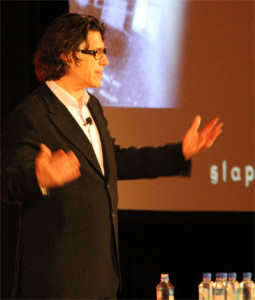 Q: What can a company expect by giving this book to its managers?
Q: What can a company expect by giving this book to its managers?
A: It can expect its managers to offer emotional commitment to the enterprise—unchecked and unhesitating support for the company and its success. It can expect managers to demand more personal fulfillment from their jobs but not necessarily more of their company. Large companies have already begun to buy this book for all their managers and for their B2B customers too—as a gift to help their success. I love that.
Q: What can a manager expect from reading this book?
A: Expect to sharpen every management skill you have that involves achieving results through others. Even more important, expect to learn how to turn your job into a mechanism for fulfilling your deepest personal values. If you’re dissatisfied with your life as a manager, this book is going to make you satisfied. If you’re pretty satisfied, this book is going to make you more satisfied. If you’re completely satisfied that’s good. A rich fantasy life is important to overall mental health.
Q: Why did you write Bury My Heart at Conference Room B?
A: I wrote it to make the business case for a manager’s humanity. We lose that and everyone’s in a whole lot of trouble. We save that—manager by manager and company by company—and we’ve saved ourselves.
In case the icy hand of altruism hasn’t gripped the enterprise by the throat, I also wrote it to help any organization achieve emotional commitment from its managers, which is worth more than their financial, intellectual and physical commitment combined.
Pick up a copy of Bury My Heart at Conference Room B by clicking here.
June 26, 2012
The Relentless Inappropriate Decision Making of United Airlines – A Letter from Stan Slap

Larry D. De Shon
Senior Vice President
Marketing
United Airlines
PO Box 28876
Tucson, AZ 85726-8876
Larry:
I received your form letter dated November 26 in which you advise me that I will not have quite enough miles to re-qualify for 1K status. I want to thank you for the fascinating correspondence and assure you that my comments are not personally directed at you.
Every time I think it’s impossible for United Airlines to do one more thing that is counter-intuitive to creating success, I am stunned to find the company well is far deeper than I could imagine.
My travel plans, like those of so many other frequent business travelers, were temporarily curtailed by the tragic events of September 11. I would have easily qualified for 1K status without this interruption. Apparently, any history of considerable travel purchases by repeat customers is of negligible concern to United.
I am intrigued by the relentlessly inappropriate decision-making on the part of the company. Here, in a troubled and competitive environment, is a chance to extend the program qualification period and retain the goodwill and patronage of your most loyal customers, yet the company chooses not to. I commend United, for it is an undeniably bold strategy to treat customers as a commodity of inexhaustible supply and indefatigable loyalty. Flawed, dangerous, and boneheaded, certainly, but undeniably bold.
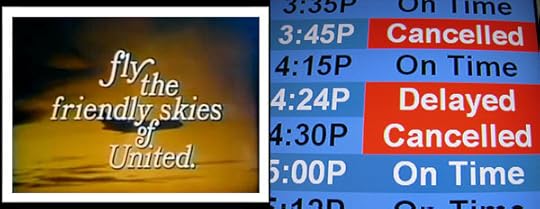
United is clearly in as much trouble after September 11 as the company was before September 11. Perhaps it is because United chooses to remain delusional and blame outside circumstances for inside problems. The company has publicly avowed that terrorists, the economy, the weather, fuel prices, government interference, the lack of government interference, a generous employee pension fund, poor labor relations as a result of defaulting on the employee pension fund, not enough customers and too many customers are reasons for its chronic misfortunes. Sure, some of these problems do exist but the real problem is what United has chosen to do about them. A few years from now these problems will still exist and, should United still be around in whatever chronically threatened state, it will still be whining about them.
Regardless of which excuse one picks (and I would love to know the decision-making process for this amongst United management—does it involve darts?), one thing is clear: United is doomed and has been doomed for quite some time. The company does not have customers; it has hostile advocates who have been forced by convenience, monopolized routes and reduced choices, or temporarily bribed by discounted fares and frequent flyer programs, into a minimal show of grudging allegiance.
Customer service is not just a department and a slogan to United; it’s a constantly inconvenient and unreasonable demand. Example: Evidently no circumstances your customers routinely face, from delayed flights to requests for special meals, have ever been seen before by your company, so how could you possibly anticipate them or be prepared to deal with them?
I don’t mean to dismiss the effort that developing and maintaining this proprietary service approach must have taken. Through a combination of diligent activities extending from the loftiest senior manager to the lowliest “customer representative,” Team United has turned what could often have been a discretionary purchase into a margin-shredding commodity purchase.
Personally, I can live very well without the 1K status; it’s hardly a badge of honor to fly frequently on United. The United FF levels should begin with “Loser,” increase to “Total Loser,” and top out with free luggage tags emblazoned with “Inoperable Loser.” And I could care less what happens to United—quid pro quo since United could care less what happens to me.
I only write this letter to thank you, on behalf of your entire, um, organization. I consult at the highest levels to many of the smartest, fastest, and most demanding companies in the world. And I give keynote speeches all over the world to business executives. I don’t know how much harder I’d have to work if United didn’t continually supply me with fresh material courtesy of your hallmark Last Flight Out of Saigon customer experience. I’ll certainly share your letter and I really appreciate the effort the company makes to keep itself relevant as a case study for corporate suicide.
Keep up the … work.
Sincerely,
Stan Slap
Letter written in 2001
Related Topicsunited air lineunited airlines corporate cultureunited airlines travel blog add comments
June 20, 2012
Why did Bury My Heart at Conference Room B take 8 years to write?
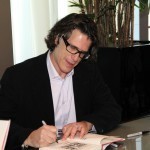 I needed to make a compelling case about a complex issue. There is a duality to the reader: They are both manager and management. As a manager, they’re concerned about themselves; as management they’re concerned about their company. There is constant tension between these two roles and to reach a reader both ways at the same time took awhile to figure out. There’s a lot of process in this book—diagnostics and examples—but the why has to be written well before the how is done for the right reasons. I didn’t write it just to explain; I wrote this book to persuade and there’s a lot more required to do that.
I needed to make a compelling case about a complex issue. There is a duality to the reader: They are both manager and management. As a manager, they’re concerned about themselves; as management they’re concerned about their company. There is constant tension between these two roles and to reach a reader both ways at the same time took awhile to figure out. There’s a lot of process in this book—diagnostics and examples—but the why has to be written well before the how is done for the right reasons. I didn’t write it just to explain; I wrote this book to persuade and there’s a lot more required to do that.
Before I started writing the book I read every article I could find about highly productive writers – the Stephen Kings and such. They all said the same thing: No matter what, get into a pattern of writing and write every day. And here I am running a company, traveling hundreds of thousands of miles a year. I would write for a couple of days, get in the zone and not be able to write again for a month, then have to get back in the zone. One of the more amazing things about writing a book is that there is not necessarily any connection between hours input and pages output. Anyway I did a lot of writing in our offices, in my library at home, in hotel rooms around the world. In the time I spent waiting to get onto planes, waiting for planes to take off and waiting for planes to land I could have written War and Peace.
June 18, 2012
The True Purpose of Leadership by Stan Slap
 If you go back to those 389,000 books about leadership and manager training on Amazon.com and read them, they will all tell you pretty much the same thing about the purpose of leadership. Manager training and Leadership books will tell you that the purpose of leadership is to increase shareholder value and team productivity. Okay? That’s not true. That is not the purpose of leadership. That has never been the purpose of leadership. That will never be the purpose of leadership. It will do those things, coincidentally when you apply it in the enterprise, but the irreducible essence of leadership is leaders are human being who live their own deepest values without compromise and they use those values to make life better for other people.
If you go back to those 389,000 books about leadership and manager training on Amazon.com and read them, they will all tell you pretty much the same thing about the purpose of leadership. Manager training and Leadership books will tell you that the purpose of leadership is to increase shareholder value and team productivity. Okay? That’s not true. That is not the purpose of leadership. That has never been the purpose of leadership. That will never be the purpose of leadership. It will do those things, coincidentally when you apply it in the enterprise, but the irreducible essence of leadership is leaders are human being who live their own deepest values without compromise and they use those values to make life better for other people.
That’s why people become leaders and that’s why people follow leaders.
So the question in today’s manager training, and for those who are watching this online I ask can you become real leaders?
June 14, 2012
Stan Slap Busts the Rumors About slap.com vs slapCompany.com
In this video blog Stan Slap explains what happened over the years with the domain name slap.com vs slapcompany.com.
Related Topicstowers watson rumors
June 12, 2012
Towers Watson Presents Stan Slap at the HR Service Delivery Forum 2012 [Images]

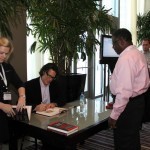

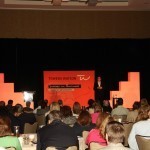
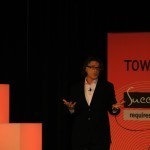
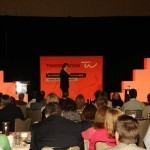
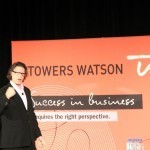
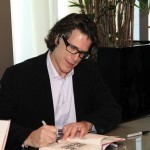

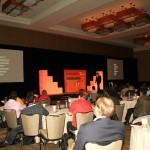
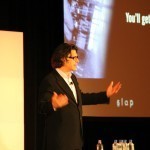

Towers Watson Presents Stan Slap Corporate Strategist as Keynote Speaker at 2012 HR Service Delivery Forum
Global professional services company Towers Watson (NYSE, NASDAQ: TW) had keynote speaker Stan Slap, a renowned corporate strategist to many of the world’s leading companies, deliver the keynote address at the 2012 HR Service Delivery Forum held April 22 – 24, 2012, at the Loews Atlanta Hotel.
Keynote speaker Mr. Slap, the president and founder of slap, an international management consulting company, has become a consultant and keynote speaker of choice for many of today’s largest and fastest-growing companies. His training programs are taught in more than 70 countries and the first of his three books, Bury My Heart at Conference Room B: The Unbeatable Impact of Truly Committed Managers, was in the top five on the best-seller lists of The New York Times, USA Today and The Wall Street Journal.
“We are very excited to have Stan deliver our keynote address,” said Tom Keebler, global leader of Towers Watson’s HR Service Delivery and Technology practices. “Stan has worked with some of the world’s most demanding organizations, helping to revolutionize their performance, and inspire total commitment among their employees. He’s also a high-energy and entertaining keynote speaker, and his speeches are provocative and smart, as well as funny and heartfelt.”
The Towers Watson HR Service Delivery Forum annually attracts more than 350 senior human resource executives and professionals with HR service delivery, technology or operations responsibilities to see this keynote speaker. The three-day event offers more than 60 sessions covering a broad range of topics related to the HR function, HR technology and HR service delivery. Participants will have the opportunity to hear expert perspectives on what the future holds for HR service delivery and technology, and also test-drive the latest HR technologies.





